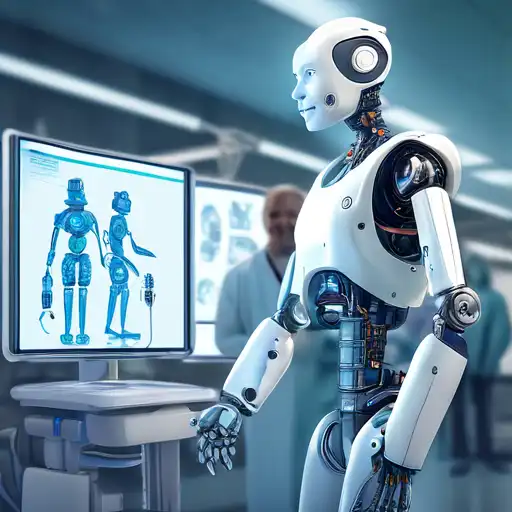The Dawn of a New Era in Healthcare
In recent years, the integration of robotics into healthcare has marked the beginning of a transformative era. From surgical robots to automated diagnostic systems, robotics is redefining the boundaries of medical science and patient care. This article explores the groundbreaking advancements and the potential future of robotics in healthcare.
Revolutionizing Surgical Procedures
One of the most significant contributions of robotics in healthcare is in the field of surgery. Robotic-assisted surgery allows for unparalleled precision, reducing human error and improving patient outcomes. Systems like the Da Vinci Surgical System have become synonymous with minimally invasive procedures, offering faster recovery times and reduced hospital stays.
Enhancing Diagnostic Accuracy
Robotics also plays a pivotal role in diagnostics. Automated systems can analyze vast amounts of data with incredible accuracy, aiding in the early detection of diseases such as cancer. These technologies not only speed up the diagnostic process but also enhance the reliability of results, ensuring patients receive the most effective treatment plans.
Improving Patient Care and Rehabilitation
Beyond surgery and diagnostics, robotics is transforming patient care and rehabilitation. Robotic exoskeletons, for example, are enabling individuals with mobility impairments to walk again. Similarly, robotic prosthetics are offering amputees a new lease on life, with devices that mimic natural movement more closely than ever before.
The Future of Robotics in Healthcare
Looking ahead, the potential applications of robotics in healthcare are boundless. From nanorobots capable of targeting individual cancer cells to AI-driven robotic nurses, the future promises even more innovative solutions to age-old medical challenges. As technology continues to evolve, so too will the ways in which we approach healthcare and treatment.
Challenges and Considerations
Despite the numerous benefits, the integration of robotics into healthcare is not without its challenges. Issues such as high costs, the need for specialized training, and ethical considerations must be addressed to fully realize the potential of these technologies. However, with ongoing research and development, these hurdles are gradually being overcome.
In conclusion, robotics in healthcare is not just a game changer; it's a paradigm shift. By enhancing precision, efficiency, and outcomes, robotics is setting a new standard for medical care. As we continue to explore and expand these technologies, the possibilities for improving human health are limitless.
